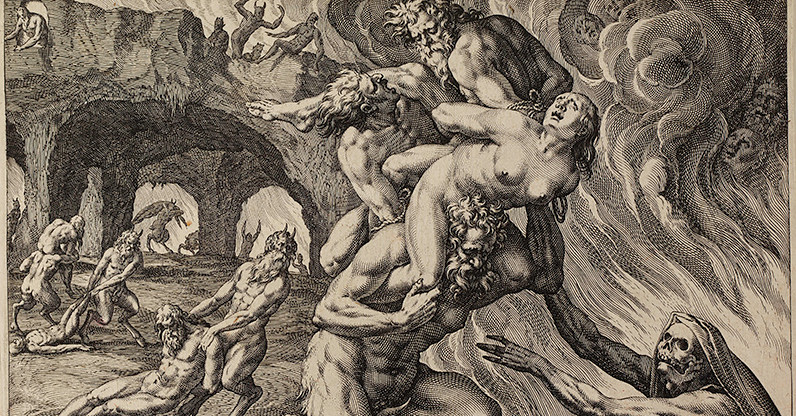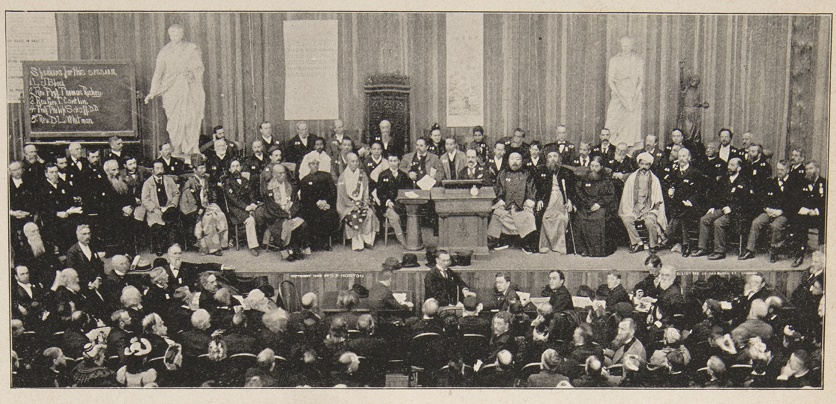7 Questions for Anthony Petro

I wanted to write something about religion and sexuality for my doctoral work, but I never thought about writing on religion and the AIDS crisis until I watched a film by Gregg Bordowitz, an artist and professor at the Art Institute of Chicago. . . . One of the scenes featured a gay black man standing at a microphone, describing how horrendous the AIDS crisis was at the time – in the 1980s – and then he spoke about God. Not in a negative way, but as a positive force, as a source of grace, even for gay men with AIDS.
Indian Summers: “For Europeans to Commit Murders is an Impossibility” Edition

This is our fourth in a series of discussions about the PBS Masterpiece series Indian Summers, airing Sunday nights at 9 pm EST on PBS. Sacred Matters’ managing editor Michael J. Altman and Ilyse Morgenstein Fuerst, assistant professor of religion at the University of Vermont, will offer their reviews of the series as it airs in the United States. NOTE: THERE ARE SPOILERS.
The Muppets are America

Hussein Rashid The Muppets are back on TV, and now seems to be a good moment to talk about how they represent what America is, not what it was. Their recent family news and music videos display the multi-cultural United States that is our new normal. First, of course, is the shocking news that Kermit and Miss Piggy have broken up, and that Kermit has a new girlfriend. It is a sad day, but also speaks to the fact that the US has a high divorce rate.
Seven Questions for Ted Smith

The deepest roots of this book, Weird John Brown, are in my attempts to think about how to live as a white man in a United States that is so deeply disfigured by slavery and its legacies.
American Religion: Less is More

Gary Laderman What do you think? Is religious life fully captured by survey questions, graphs and bar charts? Or do these methods of collecting and displaying data fall short as indicators of the spiritual lives of Americans? Is it time to panic about the supposed decline of religion, or should we look to other metrics and methods to delve into what is really happening on the American religious landscape?
Indian Summers: Find Your Seat at the Table Edition

This is our third in a series of discussions about the PBS Masterpiece series Indian Summers, airing Sunday nights at 9 pm EST on PBS. Sacred Matters’ managing editor Michael J. Altman and Ilyse Morgenstein Fuerst, assistant professor of religion at the University of Vermont, will offer their reviews of the series as it airs in the United States. NOTE: THERE ARE SPOILERS.
Giving up the Ghost?: Being Human in the Age of Intelligent Machines (Part I)

Sylvester Johnson For several centuries now, at least, a thriving humanities tradition has been established on the notion that being human is in large measure predicated on the ability to think and reason. In contemplating the nature of human ontology, Rene Descartes (1596–1650) famously quipped that the human subject can be known to exist precisely because of thinking, which requires a thinker as subject—Cogito ergo sum.
Hell House

Kelly J. Baker I want to go to a Hell House, the evangelical Christian alternative to the ubiquitous haunted houses that pop up every October. I say this almost every year, but I’ve yet to attend one. I’ve only had near misses. When I was in high school in the 1990s, local churches took their youth groups to a Judgement House, the kissing cousin of the Hell House, in Dothan, Alabama. The ride was about 90 minutes round trip, but Judgement House’s message about dangers of the modern world were apparently worth cramming boisterous teens into buses and church vans.
Indian Summers: “You’re a Bloodthirsty Sepoy, Man!” Edition

Michael J. Altman and Ilyse Morgenstein Fuerst This is our second in a series of discussions about the PBS Masterpiece series Indian Summers, airing Sunday nights at 9 pm EST on PBS. Sacred Matter’s managing editor Michael J. Altman and Ilyse Morgenstein Fuerst, assistant professor of religious studies at the University of Vermont, will offer their reviews of the series as it airs in the United States. Don’t miss their analysis of episodes 1 and 2. NOTE: THERE ARE SPOILERS
Peace, Love, and World Religions?

Brian Pennington In 1893, Presbyterian minister John Henry Barrows opened the inaugural World’s Parliament of Religion in Chicago by inviting the first-ever assembly of religious leaders from across the globe to join him in a “act of common worship” and to sing Isaac Watt’s Trinitarian re-write of the 100th Psalm. This less-than-catholic invocation, which concludes with the call to “Praise Father, Son and Holy Ghost,” was followed by a similar gesture when Cardinal James Gibbons recited the Lord’s Prayer, which Barrow declared the “universal prayer” that would open each of the Parliament’s seventeen days.
